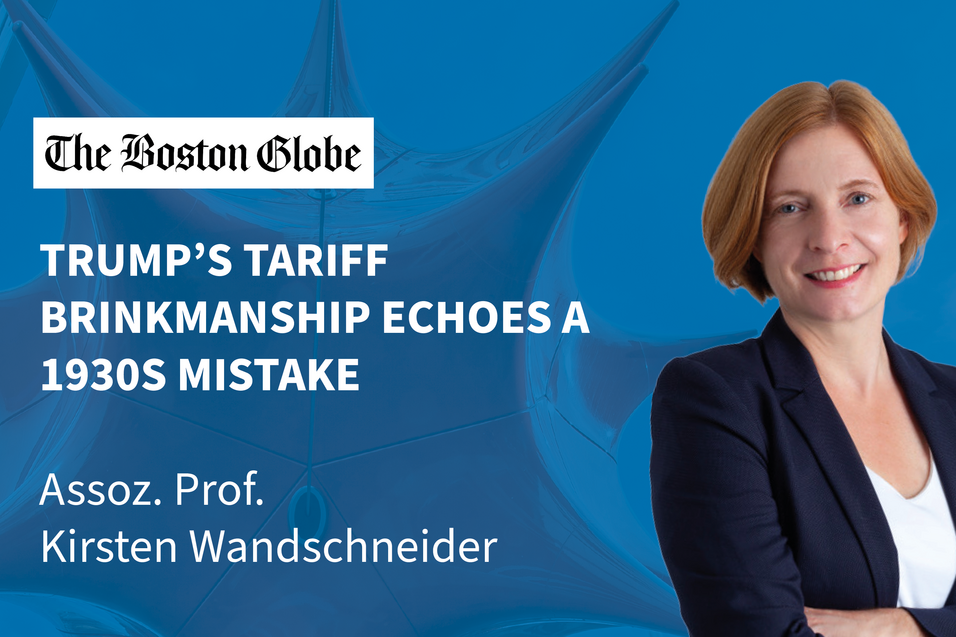More jobs, a stronger economy, less reliance on foreign imports – these are the promises governments often make when they raise tariffs and adopt protectionist measures. A recent example is the U.S. government under President Donald Trump, which will impose worldwide tariffs starting April 2. But do such measures really lead to economic stability?
In a recent article for The Boston Globe, Associate Prof. Kirsten Wandschneider (University of Vienna I Faculty of Business, Economics and Statistics) and Prof. Kris Mitchener (Santa Clara University) examine the historical parallels between Trump's tariff policies and the Smoot-Hawley Act of 1930, one of the most consequential economic decisions in U.S. history. The basis for their article is a recent study they have undertaken, examing the Smoot-Hawley Act and its consequences.
You can read the article here.
Study: Kris James Mitchener & Kevin Hjortshøj O'Rourke & Kirsten Wandschneider, 2022. "The Smoot-Hawley Trade War," The Economic Journal, vol 132(647), pages 2500-2533.

